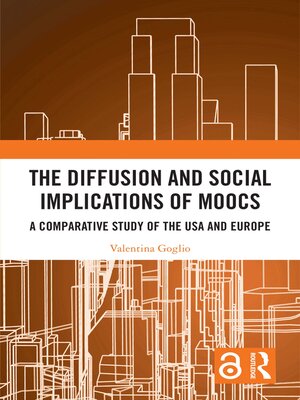The Diffusion and Social Implications of MOOCs
ebook ∣ A Comparative Study of the USA and Europe
By Valentina Goglio

Sign up to save your library
With an OverDrive account, you can save your favorite libraries for at-a-glance information about availability. Find out more about OverDrive accounts.
Find this title in Libby, the library reading app by OverDrive.



Search for a digital library with this title
Title found at these libraries:
| Loading... |
Chapter 9 of this book is available for free in PDF format as Open Access from the individual product page at www.routledge.com. It has been made available under a Creative Commons Attribution-Non Commercial-No Derivatives 4.0 license.
Since their first appearance in 2011, Massive Open Online Courses (MOOCs) have been at the centre of a great deal of media attention, owing to their disruptive potential in education. As university-level courses delivered free-of charge on digital platforms, they have also been the occasion of conflicting views regarding the quality of education and the future configuration of higher education systems. Based on new empirical research, including qualitative interviews as well as quantitative data from learners across several MOOCs, this book contributes to the debate by providing a comparative study of the diffusion and social implications of MOOCs in the USA, where everything started, and in Europe, where MOOCs were belatedly adopted by higher education institutions but now exhibit remarkable growth. Investigating the impact of MOOCs at macro level, on national higher education systems, as well as the social implications of MOOCs at micro level, with particular attention to the opportunities offered to learners to acquire knowledge and skills The Diffusion and Social Implications of MOOCs provides an encompassing comparative investigation of the specificity and social implications of the diffusion of MOOCs in two geographically and institutionally diverse contexts. As such, it will appeal to social scientists with interests in new technologies and higher education.






